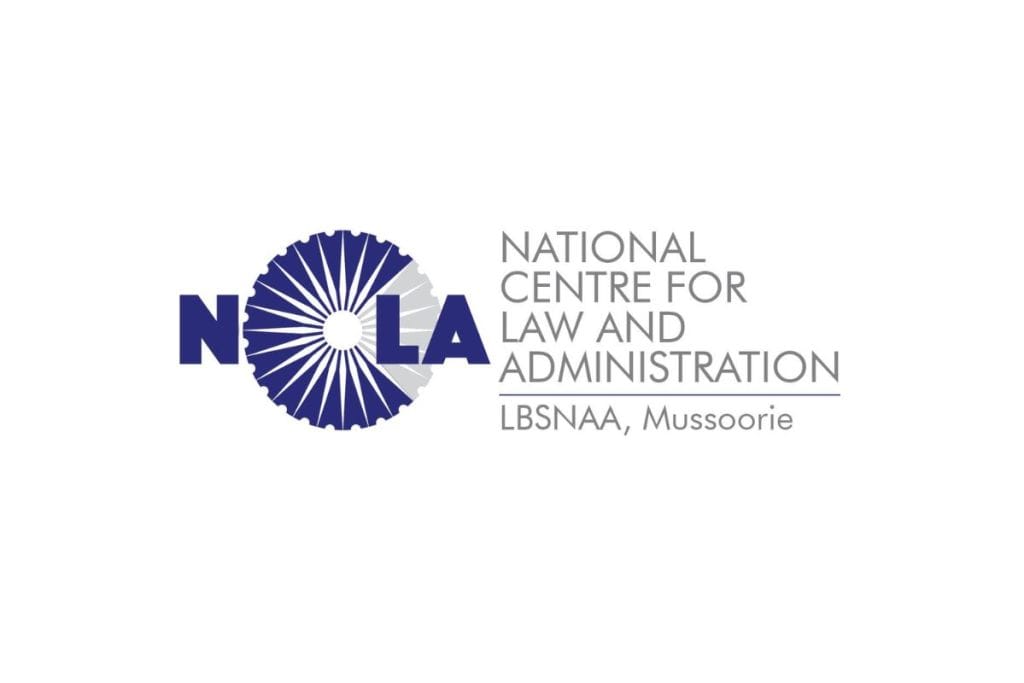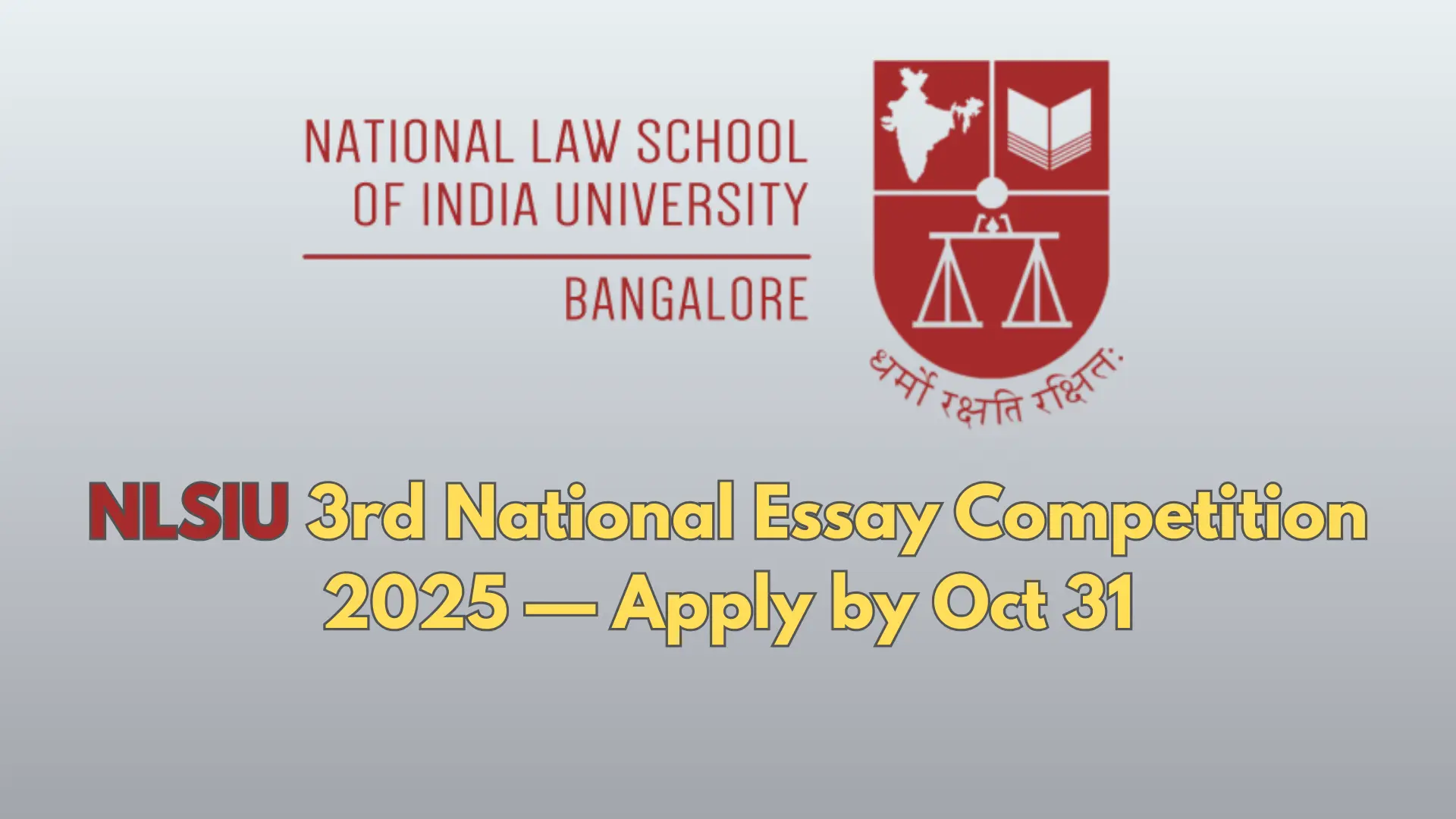By the time you reach your 3rd or 4th year of law school, the pressure to gain meaningful experience is real. Internships, credibility, and building a strong resume become top priorities—but for many students, navigating endless generic postings can feel overwhelming. How do you know which opportunities offer hands-on legal experience instead of just administrative tasks? I’ve been there: scrolling through page after page of “apply now” emails, LinkedIn posts, and Google searches, wondering which NGOs actually allow you to engage in research, advocacy, or real legal work.
NGO internships are different. They provide immersive experiences for law students passionate about social justice, human rights, child welfare, environmental law, or policy. Here, you can observe law in action, draft petitions, assist in litigation, and occasionally interact with courts or government bodies. But a word of caution: not every NGO internship is the same. Some offer structured mentorship and meaningful responsibility, while others limit you to filing or organising documents.
This guide is for law students tired of generic internships. I’ve compiled a list of Indian NGOs offering legal internships that allow you to learn, contribute, and grow. Each listing includes practical tips, application advice, and insider insights to help you find opportunities aligned with your interests—be it child rights, human rights, or public policy.
By the end, you’ll have a clear plan to pursue relevant NGO internships, know what to expect, and understand how to turn a short stint into a lifelong skillset.
1. Human Rights Law Network (HRLN), Delhi / Mumbai / Bangalore
If you’re serious about human rights advocacy as a law student, HRLN is one of the most impactful NGOs to intern with in India. They focus on public interest litigation, human rights cases, and legal aid for marginalized communities. For law students, this isn’t just a desk job—it’s real exposure to the courtroom and legal research.
Internship Details
- Roles: Legal research, drafting PILs, assisting lawyers in court, field visits
- Duration: 4–12 weeks (flexible depending on your semester)
- Eligibility: Law students from 2nd year onwards
- Location: Delhi (HQ), with branches in Mumbai & Bangalore
- Perks: Mentorship from senior lawyers, exposure to actual litigation, certificate
Tips for Applying
- Tailor your application: HRLN looks for students passionate about social justice. Highlight any volunteer work, research papers, or previous legal internships.
- Draft a concise motivation letter: Explain why human rights matter to you personally and how you want to contribute. Avoid generic sentences.
- Follow up professionally: After submitting your application, send a polite email after 7–10 days to demonstrate interest.
Personal Insight
During my brief research, I noticed HRLN interns often get to observe court proceedings, meet clients, and participate in legal strategy discussions. It’s a steep learning curve but extremely rewarding. If your goal is to combine legal knowledge with social impact, HRLN is an NGO where law students can genuinely grow.
Human Rights Law Network (HRLN) – HRLN Official Website
2. Child Rights & You (CRY), Mumbai
For law students interested in child rights, juvenile justice, and advocacy for vulnerable children, CRY is a go-to NGO in India. Unlike some NGOs where internships are purely administrative, CRY offers hands-on legal experience focused on policy implementation, child protection laws, and legal awareness campaigns.
Internship Details
- Roles: Legal research on child rights issues, drafting reports, assisting in advocacy projects, field visits
- Duration: 4–8 weeks (summer or semester internships)
- Eligibility: Law students (2nd year onwards) with an interest in child welfare laws
- Location: Mumbai, with remote work options for research and documentation
- Perks: Exposure to real-world child rights cases, certificate, networking with professionals in the child rights space
Tips for Applying
- Showcase relevant interest: Include any coursework, volunteer work, or projects related to child welfare, juvenile justice, or social work.
- Prepare a strong cover letter: Clearly articulate why protecting children’s rights matters to you and how you want to contribute. Avoid generic statements like “I want to help society.”
- Be proactive: Follow up on emails, ask questions, and express willingness to contribute to ongoing projects. This shows genuine interest.
Personal Insight
CRY interns often get the chance to observe legal proceedings in juvenile courts, participate in advocacy campaigns, and work on impactful research projects. The environment is nurturing but challenging—perfect for law students who want real exposure to public interest law, child welfare, and policy research.
This internship is especially beneficial if your future goals include public interest litigation, child rights advocacy, or policy-making in India. It’s a space where your legal knowledge meets social impact in a tangible way.
Child Rights and You (CRY) – CRY Official Website
3. Amnesty International India – Human Rights & Legal Advocacy
If human rights law excites you and you want to experience international standards applied in India, Amnesty International India is a top choice. This NGO combines legal research, advocacy, and policy campaigns, giving law students exposure to both domestic and global human rights frameworks.
Internship Details
- Roles: Research on human rights violations, drafting reports, assisting in legal campaigns, supporting litigation initiatives
- Duration: 6–12 weeks (flexible)
- Eligibility: Law students from 2nd year onwards, especially those with an interest in human rights or constitutional law
- Location: Delhi and remote work options
- Perks: Mentorship from human rights lawyers, certificate, opportunities to network with experts, exposure to PILs and advocacy campaigns
Tips for Applying
- Highlight relevant experience: Any prior research papers, debate participation, or volunteer work in human rights matters will strengthen your application.
- Strong motivation letter: Explain why human rights matter to you personally. Amnesty looks for candidates who can articulate commitment, understanding, and empathy, not just academic excellence.
- Be proactive: Interns often get access to high-profile campaigns and legal interventions—show willingness to participate actively.
Personal Insight
Amnesty International India doesn’t just let interns observe; they encourage active involvement in advocacy and legal research. Many interns have contributed to drafting legal reports, monitoring human rights cases, and supporting PIL initiatives.
For law students, this internship is invaluable if your aim is to combine litigation skills with policy advocacy and public interest law. It’s a chance to see how law functions as a tool for social change, with mentorship and structured guidance.
Amnesty International India – Human Rights & Legal Advocacy – Visit Amnesty International India
4. Nazdeek Legal Aid – Rights of Women & Marginalised Communities
If you want to work on women’s rights, legal aid, and social justice, Nazdeek is one of India’s most student-friendly NGOs for law internships. They focus on empowering marginalised communities through legal awareness, PIL support, and on-ground advocacy.
Internship Details
- Roles: Legal research, drafting notices and PILs, assisting lawyers in fieldwork, documenting cases of rights violations
- Duration: 4–10 weeks
- Eligibility: Law students (2nd year onwards) passionate about gender justice, human rights, or community legal aid
- Location: Delhi / Remote options for research-based work
- Perks: Exposure to real-world legal aid, mentorship from senior advocates, a certificate, and networking with social justice professionals
Tips for Applying
- Show genuine interest: Highlight any volunteer experience or research on women’s rights, domestic violence, or marginalised communities. Generic statements won’t cut it.
- Draft a concise application: Explain why you want to intern at Nazdeek and what skills you bring—focus on legal research, drafting, and advocacy skills.
- Follow up politely: Nazdeek receives many applications. A polite follow-up demonstrates initiative and commitment.
Personal Insight
Interns at Nazdeek often participate in field visits to marginalised communities, observe court proceedings, and assist in drafting legal notices or PILs. The work is hands-on, challenging, and extremely rewarding. For law students, this internship is a perfect bridge between academic knowledge and real-world social impact.
If your career goal involves public interest litigation, women’s rights advocacy, or community legal empowerment, Nazdeek provides practical exposure that is unmatched.
Nazdeek Legal Aid – Rights of Women & Marginalised Communities – Visit Nazdeek
5. Lawyers Collective – Public Interest & Human Rights Internship
For law students looking to dive deep into public interest litigation, human rights law, and legal advocacy, Lawyers Collective in India offers one of the most impactful internship experiences. This NGO has been involved in high-profile PILs, gender justice cases, and rights-based advocacy, giving interns a firsthand look at how law drives social transformation.
Internship Details
- Roles: Research on legal and policy issues, drafting petitions and reports, assisting lawyers with court documentation, supporting advocacy campaigns
- Duration: 6–12 weeks (flexible)
- Eligibility: Law students from 2nd year onwards with an interest in constitutional law, human rights, or gender justice
- Location: Mumbai (onsite) / Remote research options available
- Perks: Mentorship from experienced human rights lawyers, exposure to PIL drafting and filing, certificate, opportunities to attend workshops, seminars, and advocacy sessions
Tips for Applying
- Tailor your application: Highlight any research, projects, or coursework in public interest, human rights, or social justice law.
- Strong motivation letter: Clearly explain why you want to work in public interest litigation and how your skills and passion align with Lawyers Collective’s mission.
- Be proactive: Interns who ask questions, volunteer for additional tasks, and engage in ongoing advocacy campaigns often get deeper learning experiences.
Personal Insight
Interns at Lawyers Collective often get hands-on exposure to drafting PILs, researching landmark judgments, and understanding policy-level advocacy. The work is challenging but extremely rewarding, giving law students a real sense of how law serves society beyond textbooks.
If your career path is public interest law, PILs, or rights-based advocacy, this internship provides unmatched practical experience and professional mentorship.
Lawyers Collective – Public Interest & Human Rights Internship – Visit Lawyers Collective
6. Human Rights Law Network (HRLN) – Legal Research & Litigation Internship
For law students who want to combine legal research with active litigation, HRLN is a top choice. Known for its work in human rights, public interest litigation, and social justice, this NGO gives interns a real-world view of how law protects marginalized communities.
Internship Details
- Roles: Legal research, drafting PILs and petitions, assisting lawyers in court proceedings, field visits to document human rights violations
- Duration: 6–12 weeks
- Eligibility: Law students (2nd year onwards) interested in human rights law, constitutional law, or social justice advocacy
- Location: Delhi, Mumbai, and field offices across India / Remote research opportunities available
- Perks: Mentorship from senior human rights lawyers, exposure to real PIL cases, certificate, opportunities to attend workshops and advocacy training
Tips for Applying
- Showcase relevant experience: Any prior work or research in human rights, gender justice, child rights, or constitutional law will strengthen your application.
- Write a compelling motivation letter: HRLN values interns who demonstrate passion for social justice and practical legal understanding.
- Demonstrate flexibility: Field visits and court observation require adaptability—show readiness to engage both in-office and on-ground work.
Personal Insight
Interns at HRLN often assist in drafting petitions, attending court hearings, and documenting case studies, gaining firsthand insight into the intersection of law and social change. Unlike many internships that remain desk-bound, HRLN provides a mix of legal research and practical exposure, helping students develop both analytical and advocacy skills.
For any law student aiming to work in public interest litigation or rights-based legal practice, HRLN offers an unmatched internship experience that prepares you for the real challenges of law in society.
Human Rights Law Network (HRLN) – Legal Research & Litigation Internship – Visit HRLN
7. CRY (Child Rights and You) – Child Protection Legal Internship
For law students passionate about child rights and legal protection, CRY is one of India’s most reputed NGOs. Their legal wing focuses on ensuring child protection, advocating for education rights, and fighting child labor through law. Interning here gives students direct exposure to child rights litigation and advocacy work.
Internship Details
- Roles: Legal research, drafting notices and reports, supporting child rights advocacy, assisting in PILs related to education, health, and child labor issues
- Duration: 6–10 weeks
- Eligibility: Law students (2nd year onwards) with interest in child rights, social justice, or public interest law
- Location: Delhi / Remote research projects available
- Perks: Mentorship from lawyers working in child rights, certificate, exposure to legal advocacy campaigns, networking opportunities
Tips for Applying
- Highlight relevant projects or research: Experience in child rights, education law, or social welfare initiatives strengthens your application.
- Craft a personal motivation letter: CRY values interns who demonstrate genuine concern for children’s issues and a clear understanding of legal frameworks protecting child rights.
- Be proactive in learning: Attend webinars, workshops, and field activities whenever possible to gain holistic exposure to child rights law.
Personal Insight
Interns at CRY often engage in drafting legal reports, supporting advocacy campaigns, and documenting violations of child rights, gaining practical insights that bridge classroom learning and real-world impact. The internship provides a hands-on understanding of how law protects vulnerable children, making it ideal for law students aiming for a career in public interest or child rights law.
If you are committed to creating change through legal expertise in child protection, CRY offers a platform to combine research, advocacy, and fieldwork effectively.
CRY (Child Rights and You) – Child Protection Legal Internship – Visit CRY
8. PUCL (People’s Union for Civil Liberties) – Civil Rights Internship
If you’re a law student eager to understand civil liberties, fundamental rights, and legal activism, PUCL offers one of the most hands-on internship experiences in India. Working here gives you exposure to civil rights litigation, legal awareness campaigns, and rights-based advocacy.
Internship Details
- Roles: Legal research on civil liberties, assisting in drafting complaints and petitions, attending court proceedings, supporting rights awareness campaigns
- Duration: 6–12 weeks
- Eligibility: Law students (2nd year onwards) interested in constitutional law, civil liberties, and public interest litigation
- Location: Delhi / Remote work available for research and drafting tasks
- Perks: Mentorship from senior civil rights lawyers, exposure to landmark civil liberties cases, certificate, opportunities to participate in workshops, seminars, and advocacy campaigns
Tips for Applying
- Highlight legal research experience: PUCL appreciates interns with prior research, drafting, or advocacy experience in civil liberties or human rights law.
- Write a passionate motivation letter: Explain why you care about civil rights, legal activism, and public interest work.
- Be flexible and proactive: Fieldwork, court observations, and legal documentation require interns to adapt quickly and take initiative.
Personal Insight
Interns at PUCL often engage in researching case law, drafting complaints, and participating in campaigns for civil liberties, gaining a comprehensive understanding of rights-based legal practice. Unlike standard internships, PUCL provides a blend of research, practical legal exposure, and activism, making it ideal for law students who want to see law in action for social justice.
For anyone aspiring to work in public interest litigation, civil rights, or constitutional law, PUCL offers a platform that combines legal rigour with social impact, preparing interns for a career in advocacy and human rights law.
PUCL (People’s Union for Civil Liberties) – Civil Rights Internship – Visit PUCL
9. Nazdeek – Access to Justice Legal Internship
For law students passionate about access to justice, legal empowerment, and rights-based advocacy, Nazdeek offers a unique internship experience. This NGO works on providing legal aid, addressing social injustices, and strengthening the legal system for marginalized communities.
Internship Details
- Roles: Legal research, assisting in drafting notices, petitions, and case documentation, supporting fieldwork to resolve community disputes, conducting legal awareness workshops
- Duration: 6–10 weeks
- Eligibility: Law students (2nd year onwards) with interest in legal aid, human rights, or public interest litigation
- Location: Delhi / Remote research projects possible
- Perks: Mentorship from experienced lawyers, exposure to real-life legal aid cases, certificate, opportunities to engage with grassroots legal empowerment initiatives
Tips for Applying
- Showcase practical legal skills: Experience in legal research, drafting, or volunteer legal aid work enhances your application.
- Write a purpose-driven motivation letter: Nazdeek values interns who demonstrate a commitment to justice and community-focused law practice.
- Be adaptable and proactive: Field visits and case follow-ups require interns to manage multiple tasks and think critically on-ground.
Personal Insight
Interns at Nazdeek gain hands-on exposure to legal aid, dispute resolution, and community-based rights advocacy, bridging the gap between classroom knowledge and practical application. The internship provides a deep understanding of access-to-justice challenges while equipping law students with research, drafting, and advocacy skills essential for careers in public interest law and social justice litigation.
For law students looking to make a tangible impact on marginalized communities through legal intervention, Nazdeek offers an immersive and transformative experience, preparing interns for real-world challenges in the justice system.
Nazdeek – Access to Justice Legal Internship – Visit Nazdeek
10. Amnesty International India – Human Rights Advocacy Internship
For law students who want to engage with global human rights issues locally, Amnesty International India offers a robust internship that combines research, advocacy, and public awareness campaigns. Interning here allows students to understand the practical application of human rights law while contributing to campaigns that influence policy and protect vulnerable communities.
Internship Details
- Roles: Legal research on human rights issues, drafting reports and petitions, supporting advocacy campaigns, monitoring legislation and policies, assisting in public awareness initiatives
- Duration: 8–12 weeks
- Eligibility: Law students (2nd year onwards) interested in human rights law, international law, and policy advocacy
- Location: Delhi / Hybrid opportunities for remote work available
- Perks: Mentorship from human rights lawyers, exposure to real human rights cases, certificate, participation in seminars, workshops, and campaigns
Tips for Applying
- Highlight advocacy and research experience: Amnesty values interns with experience in legal research, writing, or human rights campaigns.
- Write a compelling motivation letter: Clearly demonstrate your commitment to human rights and awareness of legal frameworks that protect citizens.
- Be proactive and adaptable: Interns often engage in both research and fieldwork, so flexibility is key.
Personal Insight
Interning with Amnesty International India provides law students with hands-on experience in drafting reports, supporting campaigns, and monitoring rights violations. You gain insights into both domestic and international human rights mechanisms, learning how advocacy and law intersect to create real societal impact.
For students aiming for a career in human rights law, policy advocacy, or public interest litigation, this internship is ideal. It enhances legal knowledge while giving the opportunity to directly contribute to human rights protection, bridging the gap between theory and action.
Amnesty International India – Human Rights Advocacy Internship – Visit Amnesty International India
11. Human Rights Law Network (HRLN) – Legal Aid & Rights Internship
If your goal as a law student is to work on human rights litigation and legal aid for marginalized communities, the Human Rights Law Network (HRLN) is one of India’s premier NGOs to intern with. HRLN focuses on public interest litigation, rights-based advocacy, and strategic litigation in courts to protect vulnerable populations.
Internship Details
- Roles: Assisting in drafting PILs, legal research, documentation of rights violations, supporting grassroots legal aid programs, attending court proceedings, participating in advocacy campaigns
- Duration: 6–12 weeks
- Eligibility: Law students (2nd year onwards) passionate about human rights, constitutional law, and social justice litigation
- Location: Delhi, Mumbai, or remote research projects
- Perks: Mentorship from senior lawyers and litigators, exposure to real-world PIL cases, certificate, opportunities to engage with grassroots communities, workshops, and seminars
Tips for Applying
- Demonstrate legal research and drafting skills: HRLN prefers interns with prior experience in PIL drafting, legal documentation, or research on human rights issues.
- Show passion for social justice: Your motivation letter should reflect commitment to legal advocacy and protecting vulnerable populations.
- Be ready for fieldwork: HRLN interns often work directly with communities, requiring proactive engagement and adaptability.
Personal Insight
Interning at HRLN gives students direct exposure to landmark PILs and grassroots legal work, blending courtroom experience with fieldwork. Law students gain a practical understanding of legal aid mechanisms, human rights advocacy, and the challenges of implementing law for social change. Unlike typical internships, HRLN immerses interns in both strategic litigation and community-oriented projects, building skills essential for a career in public interest law.
For law students committed to human rights law and social justice advocacy, HRLN is an unmatched platform. It prepares interns for real-world legal challenges, bridging the gap between academic learning and practical impact in society.
Human Rights Law Network (HRLN) – Legal Aid & Rights Internship – Visit HRLN
Actionable Tips & How to Apply for NGO Legal Internships in India
Securing an NGO internship in India isn’t just about submitting a CV. It requires strategy, preparation, and genuine commitment to social justice. Follow this step-by-step guide to apply effectively and maximize your chances of selection.
1. Research & Shortlist NGOs
Identify NGOs that match your interests—human rights, gender justice, environmental law, or access to legal aid. Study their recent campaigns, landmark cases, and publications. This research allows you to:
- Tailor your application.
- Ask informed questions during interviews or emails.
- Demonstrate genuine interest in their mission.
2. Tailor Your Application
Resume: Highlight skills such as legal research, drafting, case studies, or volunteer work. Avoid generic formats.
Cover Letter / Motivation Letter: Personalize every application. Show your understanding of the NGO’s mission and your ability to contribute meaningfully. Include specific examples from coursework, internships, or volunteer work.
3. Highlight Soft Skills
NGO internships need more than legal knowledge. Showcase skills like:
- Communication & Advocacy: Draft clear documents and explain legal concepts to non-legal audiences.
- Adaptability & Initiative: Fieldwork often demands quick thinking and multitasking.
- Empathy & Social Awareness: Demonstrate understanding of marginalized communities’ struggles.
4. Prepare for Interviews
Many NGOs evaluate practical knowledge and commitment. Be ready to:
- Discuss legal issues relevant to their work.
- Share volunteering, research, or legal aid experiences.
- Answer scenario-based questions, e.g., handling a community dispute or public interest case.
5. Follow Up & Network
If you don’t hear back in 1–2 weeks, send a polite follow-up email. Connect with alumni or past interns to gain insights and strengthen your application.
6. Use Online Portals & Social Media
Check NGO websites, LinkedIn, and legal internship portals regularly. Subscribe to newsletters to stay updated on deadlines.
Pro Tip: Apply early. NGOs often fill spots quickly. Prepare documents, research thoroughly, and submit ahead of time.
By combining targeted research, personalized applications, and professional communication, law students can secure internships that enhance legal skills and offer real-world experience in public interest law.
FAQs – NGO Legal Internships for Law Students in India
1. Can first-year law students apply for NGO internships?
Yes, some NGOs accept first-year students, especially for research, documentation, and remote internships. However, most NGOs prefer 2nd year and above because interns need basic legal knowledge and research skills. Always check the eligibility criteria before applying.
2. Are these internships paid or unpaid?
Most NGO legal internships in India are unpaid, but they provide hands-on experience, mentorship, and networking opportunities. A few NGOs offer stipends or travel reimbursements, especially for long-term fieldwork.
3. Can these internships be done remotely?
Yes, many NGOs now offer remote internships, especially for research, drafting, or social media advocacy projects. However, fieldwork, client interaction, and grassroots advocacy require on-site presence.
4. How long is the typical internship duration?
Durations vary between 4 weeks to 12 weeks, depending on the NGO and the project. Some NGOs also offer long-term internships spanning 6–12 months, which provide deeper exposure to public interest law cases.
5. What skills do I need for an NGO internship?
Essential skills include:
- Legal research and drafting
- Report writing and documentation
- Communication & advocacy skills
- Adaptability and teamwork
- Understanding of social issues and community engagement
6. How do I make my application stand out?
- Tailor your cover letter for each NGO.
- Highlight relevant academic projects, moot court experiences, or volunteer work.
- Demonstrate genuine passion for social justice.
- If possible, provide samples of research, articles, or PIL drafting.
7. What can I gain from an NGO internship?
- Exposure to real-life legal issues
- Experience in PILs, rights-based advocacy, and courtroom proceedings
- Opportunity to work with senior lawyers and grassroots communities
- Development of practical legal skills that textbooks cannot teach
Pro Tip:
Start early, research each NGO thoroughly, and build connections with past interns. NGOs value interns who are proactive, curious, and socially committed—qualities that set you apart in competitive applications.
Conclusion & Call-to-Action – Kickstart Your NGO Legal Journey
Interning with an NGO as a law student in India isn’t just about building your resume—it’s about diving into real-world legal challenges, understanding pressing social issues, and developing skills that textbooks can’t teach. Whether your interest lies in human rights, gender justice, environmental law, or legal aid, every NGO offers a unique perspective on public interest law.
The secret to landing these internships is preparation, personalization, and persistence:
- Research NGOs thoroughly: Understand their campaigns, values, and recent cases.
- Craft tailored applications: Highlight your skills, experience, and commitment to social justice.
- Network strategically: Connect with alumni or past interns to gain insights and strengthen your application.
These internships let you work alongside experienced lawyers, participate in PILs, and engage with marginalized communities, offering a front-row view of India’s evolving legal landscape. More importantly, they instill ethical responsibility and a sense of purpose—qualities every law student should carry forward.
Pro Tip: Apply early, follow up professionally, and be ready to adapt. NGOs value interns who are proactive, empathetic, and initiative-driven. Even unpaid internships provide mentorship, hands-on experience, and networking opportunities that are invaluable for your career.
If you’re serious about a law career that creates social impact, start your search today. Choose NGOs that align with your passion, prepare a polished application, and take the leap. One internship could shape your journey in public interest law.
CTA: Don’t wait for opportunities—research, apply, and step into the world of NGO legal internships in India now. Gain hands-on experience, sharpen your legal skills, and demonstrate your commitment to justice.






